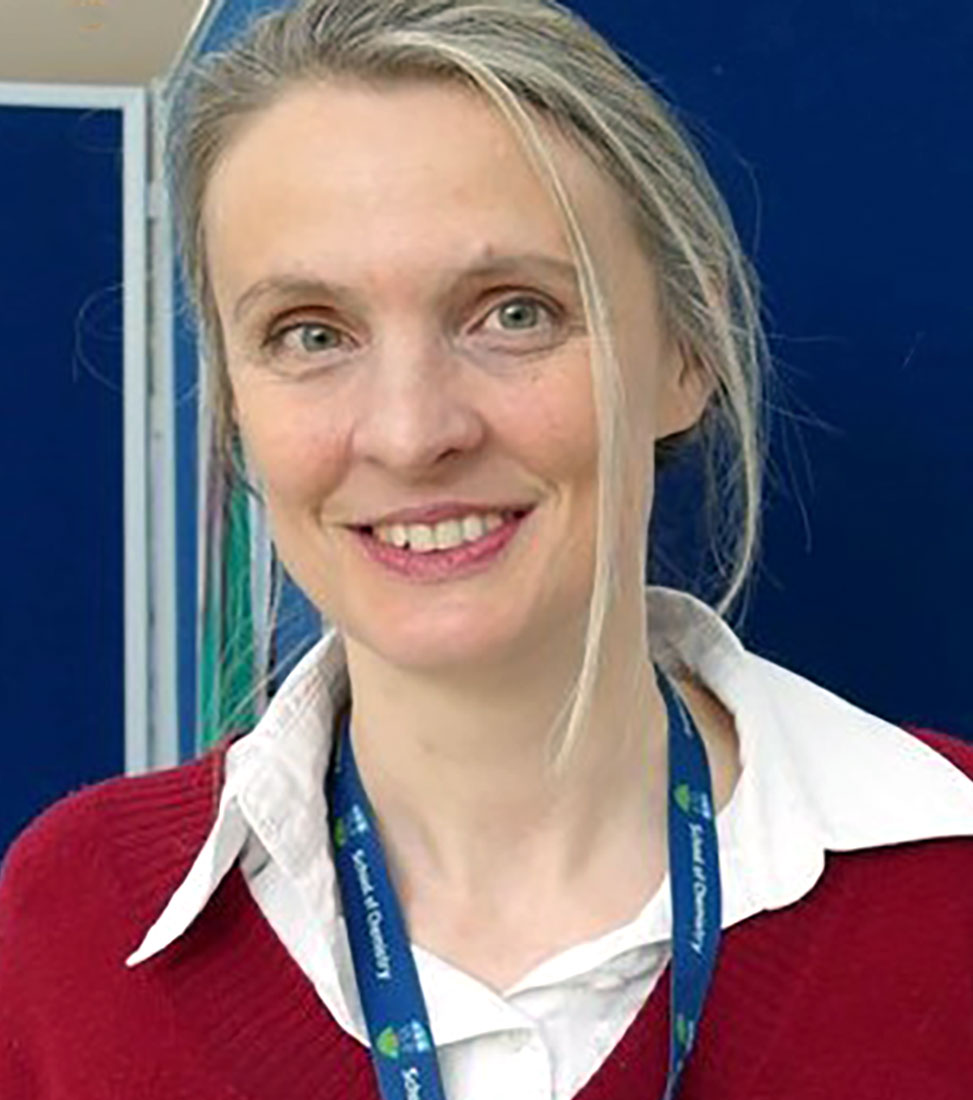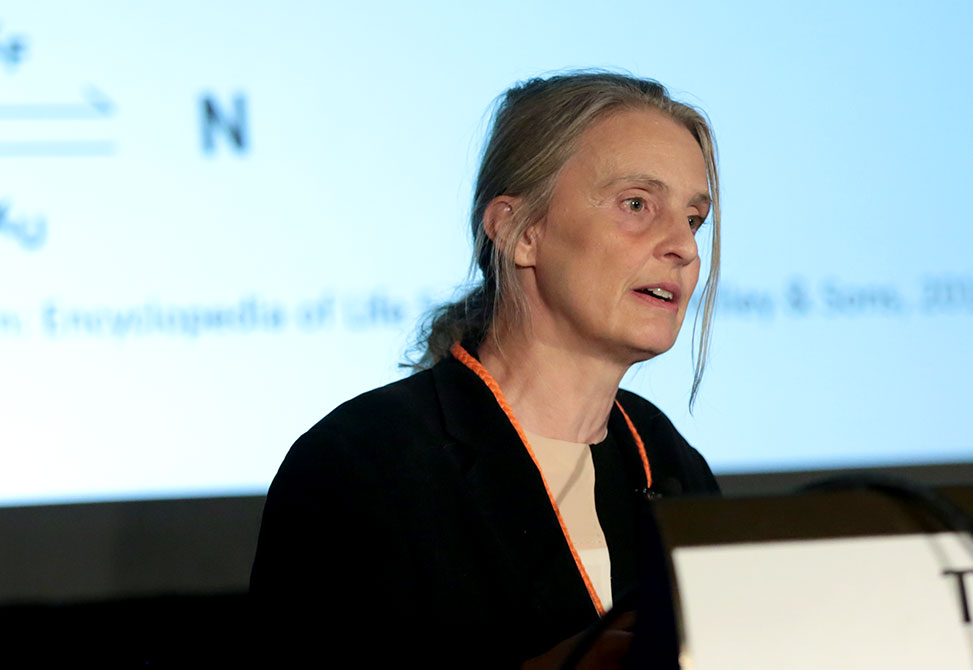Marina Rubini
University College Dublin, Ireland
Talk Title
4-Thiaproline Eliminates the Slow Folding Phase of Proteins With Cis Prolines in The Native State
Presentation Time
SESSION 4: PROTEIN ARCHITECTURES - STRUCTURE AND FUNCTION
Monday, June 26, 2023, at 09:40 am - 10:00 am
The cis/trans isomerization of peptidyl-prolyl peptide bonds is an intrinsically slow reaction that significantly slows down the folding process in proteins that contain cis proline residues in the native state. To date, several proline analogues have been used in peptide/protein engineering for investigating protein folding kinetics and thermodynamic stability, as substituents at the Cγ atom of proline have a strong effect on the two main conformational equilibria of proline residues in polypeptides, namely the endo/exo ring puckering of the proline ring and the cis/trans equilibrium of prolyl-peptide bonds.
We have analyzed the influence of 4,4-difluoroproline, Dfp, on the thermodynamic stability and on the rate‐limiting trans‐to‐cis isomerization of the Ile75–Pro76 peptide bond in the folding of Trx1P, an Escherichia coli thioredoxin, Trx, variant. Our results showed that the replacement of cisPro76 with Dfp in Trx1P causes a significant destabilization of the oxidised form of the fluorinated protein, while it did not eliminate the bottleneck of the Trx refolding reaction nor had an impact on the attainment of the cis/trans equilibrium in the unfolded state.1 Although Dfp displays the lowest energy barrier for cis/trans isomerization in model peptides in comparison to Pro and its 4-monofluorinated analogues, our results suggest that the pucker effect in the context of tertiary structures might prevail over cis/trans isomerization rates measured in the context of short model peptides.
Next, we investigated the effect of 4-thiaproline, Thp, on the refolding kinetics of Trx1P and pseudo-wild-type barstar, cisPro48, as in model peptides Thp has been shown to decrease the free energy of activation for peptide isomerization by 10 kJ/mol in comparison to Pro. To date, no data have been reported concerning the impact of Thp on protein folding. We found that in the context of the tertiary structure of our model proteins, the kinetics of the rate‐limiting step of the refolding reaction was accelerated by 2 orders of magnitude with a similar effect in the unfolded state, while thermodynamic stability and protein bioactivity was completely retained, unpublished results. Our results indicate that Thp can eliminate the slow folding phase of proteins that display a cis peptide bond in the native state.
Reference
1. O'Loughlin J., Napolitano S., Rubini M. Protein Design with Fluoroprolines: 4,4-Difluoroproline Does Not Eliminate the Rate-Limiting Step of Thioredoxin Folding. ChemBioChem, 2021; 22, 3326-3332
Marina Rubini is College Lecturer/Assistant Professor, permanent, in Chemical Biology at University College Dublin, School of Chemistry. Prior to this position, she was Senior Scientist at the ETH Zurich, Department of Molecular Biology and Biophysics, and for four years served as Independent Group Leader at the University of Konstanz, Department for Organic Chemistry/Cellular Chemistry.
Marina held a Post-Doctoral Fellowships in the Group of Prof. Dr. A. Marx, University of Konstanz, Department for Organic Chemistry/Cellular Chemistry, and in the Group of Prof. Dr. A. Skerra, Technical University of Munich, Department of Biological Chemistry. She earned her Ph.D. in the Group of Prof. Dr. R. Huber, MPI for Biochemistry, Department for Structural Biology, where her supervisor was Prof. Dr. N. Budisa. Additionally, she performed scientific work at the C.R.I.B.I. Biotechnology Centre, University of Padua, Department of Protein Chemistry. She earned her Diploma Thesis in the Group of Prof. Dr. R. Rocchi, University of Padua, Department of Organic Chemistry.






